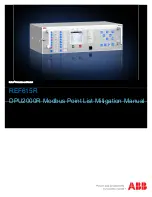
1-20
Cisco BPX 8600 Series Installation and Configuration
Release 9.3.30, Part Number 78-12907-01 Rev. E0, May 2005
Chapter 1 The BPX Switch: Functional Overview
Traffic and Congestion Management
Traffic and Congestion Management
The BPX switch provides ATM standard traffic and congestion management per ATM Forum TM 4.0
using BXM cards.
The Traffic Control functions include:
•
Usage Parameter Control (UPC)
•
Traffic Shaping
•
Connection Management Control
•
Selective Cell Discarding
•
Explicit Forward Congestion Indication (EFCI)
•
Priority Bumping
In addition to these standard functions, the BPX switch provides advanced traffic and congestion
management features including:
•
Support for the full range of ATM service types per ATM Forum TM 4.0 by the BXM-T3/E3,
BXM-155, and BXM-622 cards on the BPX Service Node.
•
Advanced CoS Management (formerly Fairshare and Opticlass features) Class of Service
management delivers the required QoS to all applications.
–
The BPX provides per virtual circuit (VC) queuing and per-VC-scheduling provided by rate
controlled servers and multiple class-of-service queuing at network ingress.
–
On egress, up to 16 queues with independent service algorithms for each trunk in the network.
•
Automatic Routing Management (formerly Automatic Routing Management feature), end-to-end
connection management that automatically selects the optimum connection path based upon the
state of the network and assures fast automatic alternate routing in the event of intermediate trunk
or node failures.
•
Cost-Based Routing Management
•
ABR Standard with VS/VD; congestion control using RM cells and supported by BXM cards on the
BPX Switch.
•
Optimized Bandwidth Management (formerly ForeSight), an end-to-end closed loop rate based
congestion control algorithm that dynamically adjusts the service rate of VC queues based on
network congestion feedback.
•
Dynamic Buffer Management, Cisco’s Frame Relay and ATM service modules are equipped with
large buffers and a dynamic buffer management technique for allocating and scaling the buffers on
a per VC basis to traffic entering or leaving a node. The switch dynamically assigns buffers to
individual virtual circuits based on the amount of traffic present and service level agreements. The
large queues readily accommodate large bursts of traffic into the node.
•
PNNI, a standards-based routing protocol for ATM and Frame Relay SVCs.
•
Early and partial packet discard for AAL5 connections.
Summary of Contents for BPX 8650
Page 49: ...P A R T 1 The BPX Switch ...
Page 50: ......
Page 159: ...P A R T 2 Installation ...
Page 160: ......
Page 273: ...P A R T 3 Initial Configuration and Network Management ...
Page 274: ......
Page 311: ...P A R T 4 Configuring Connections ...
Page 312: ......
Page 487: ...P A R T 5 Troubleshooting and Maintenance ...
Page 488: ......
Page 533: ...P A R T 6 BPX Specifications ...
Page 534: ......
Page 555: ...P A R T 7 Appendices ...
Page 556: ......
















































